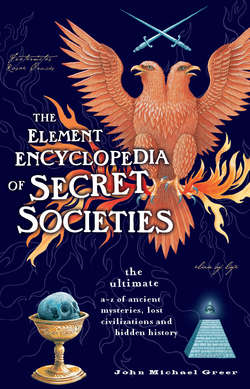Читать книгу The Element Encyclopedia of Secret Societies: The Ultimate A–Z of Ancient Mysteries, Lost Civilizations and Forgotten Wisdom - John Greer Michael - Страница 29
ANARCHISM
ОглавлениеA major political force in the nineteenth and early twentieth centuries, anarchism was communism’s most important rival in the struggle to define and control the Left, and gave rise to important political secret societies. Its principal founder was French philosopher Pierre-Joseph Proudhon (1809–65), who argued that all legal systems are methods by which the rich oppress the poor, and a just society could only be founded on the basis of voluntary associations. Proudhon’s famous What is Property? (1840) argued that “property is theft” and that systems that give ownership of land and other necessities to a few are simply methods of institutionalized robbery.
After Proudhon, anarchism developed in two main directions, and the most important figure in each was a Russian. Prince Pyotr Kropotkin (1842–1921), the doyen of pacifist anarchism, argued for an ideal state in which government and private property would alike be abolished, removing the causes of crime and violence. His older contemporary Mikhail Bakunin (1814–76) argued instead for the violent overthrow of every government. Bakunin was the head of the International Brothers, a revolutionary secret society, and his writings helped inspire a wave of political violence in the late nineteenth century carried out by anarchist and Nihilist secret societies. See International Brothers; Nihilists.
All through the late nineteenth century, anarchist and communist groups struggled for control of labor unions and left-wing political parties in Europe and America, and only the victory of the Bolsheviks in the Russian Revolution of 1917 and the Russian civil war that followed it made communism the standard doctrine of the far left in the middle years of the twentieth century. Despite a small resurgence of interest during the 1960s, anarchism never regained the ground it lost and remains mostly the concern of historians of ideas today. See Communism.
Further reading: Joll 1980, Wells 1987.
